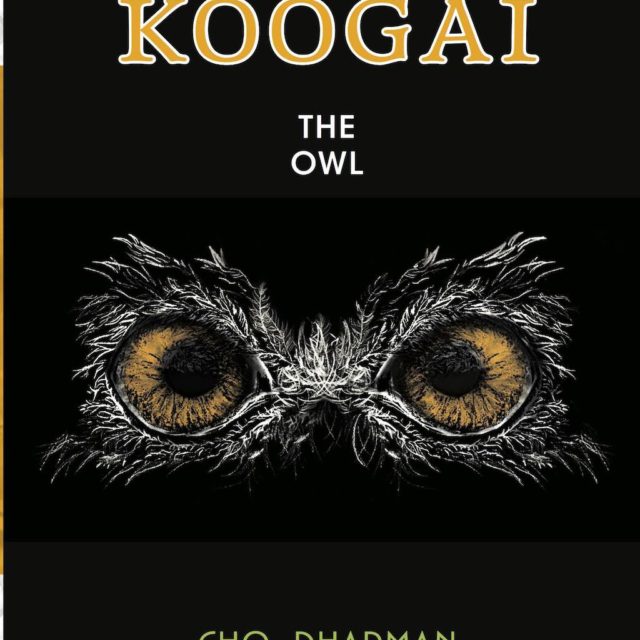“… Is there a well anywhere into which our blood has not dripped? Is there water anywhere that’s not been mixed with our sweat?
Standing well away from wells we had dug, we had held up our cupped palms for water to be poured into them from on high.
Thus had we quenched our thirst, with water that became polluted by being poured into our polluting hands.
How then did purification take place?…
When the well-spring came bubbling up.
When they leapt about in ecstasy and gathered the water again and again in their cupped palms and gulped it down, exclaiming at the wonder of it.
When, for the very first time, our Pallar women drew water from a well for their own use.
When they learnt how to drop a bucket into it, to haul it up, and fill their own earthen pots.”
Koogai, the owl—
huddled in its hollow
with the sun overhead,
it flies free
when darkness descends
Bird of the night—
an abuse, a bad omen
attacked and shunned by birds, by humans …
Strong, but unaware of
its immense power,
Koogai, the owl—
foolish
or wise?
Set in post-Independence Tamil Nadu’s era of agrarian and industrial change, Koogai reflects the nuances of an authentic contemporary myth leavened with irony and fierce humour.
Empowering themselves with the image of the owl, a totem of self-respect and hope, men and women break free of old caste taboos only to find themselves entangled in the doublespeak of an egalitarian rhetoric.
